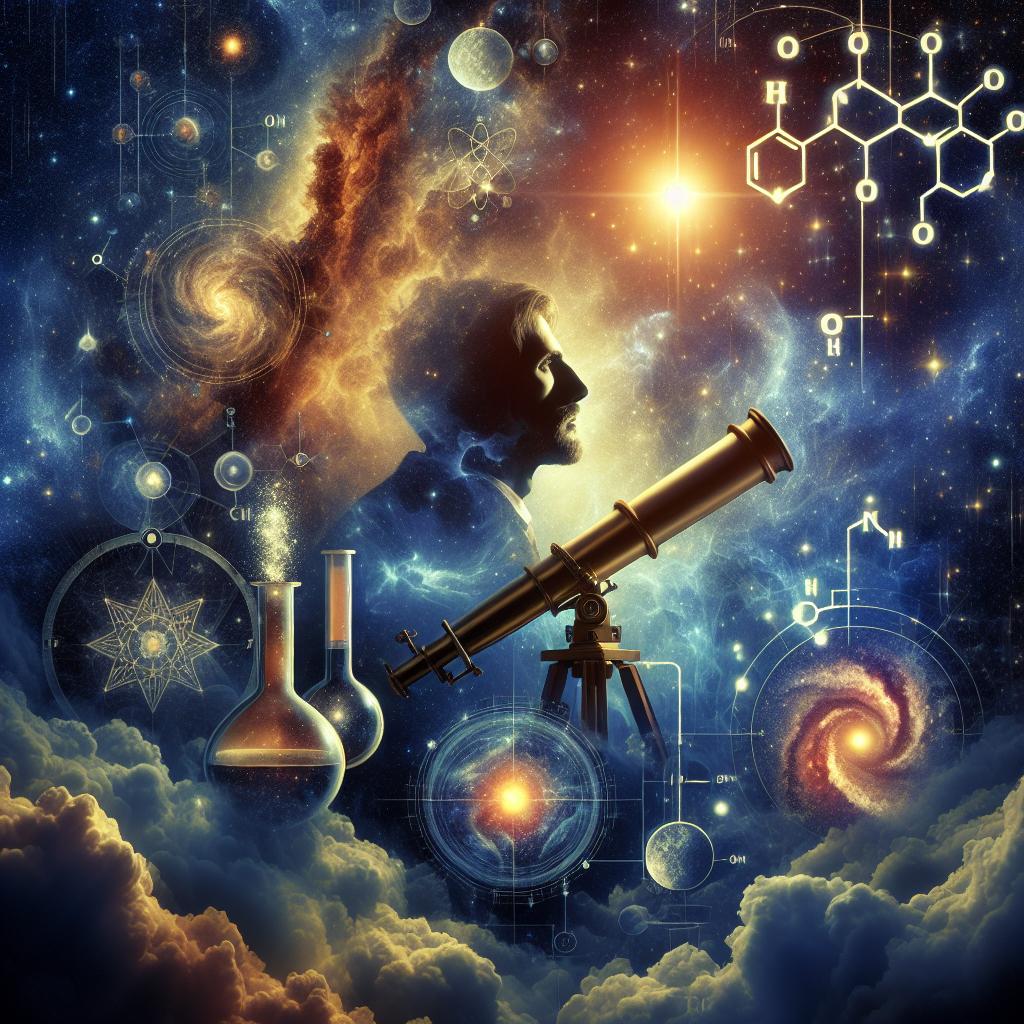
Debunking Atheist Misconceptions: Galileo, Miller-Urey, and the Probability of Creationism
Published: 22 March 2024
Answering Another Uninformed Atheist: Galileo, Miller-Urey, and Probability
In this article, we will address the claims made by an uninformed atheist regarding topics such as Galileo, the Miller-Urey experiments, and the probability of life arising in the universe. We will provide a thorough and biblical perspective on these issues and refute the misunderstandings put forth by the atheist. Through examining the historical context surrounding Galileo's trial, evaluating the limitations of the Miller-Urey experiments, and considering the improbability of life arising by chance, we will demonstrate that these arguments do not disprove the validity of biblical creation.
1. Galileo's Trial and the Church
The uninformed atheist claims that Galileo's trial for heresy is evidence of the church's opposition to scientific progress. However, this is a misrepresentation of historical facts. Galileo was not persecuted for providing scientific evidence that contradicted Scripture, but rather for defying a papal decree. The church had not officially declared the Ptolemaic view as an article of faith, and many church officials supported astronomical research. In fact, cathedrals were used as solar observatories to study the heavens.
The church's acceptance of heliocentrism in 1992 was not a reversal of its position but an acknowledgment of historical mistakes in handling Galileo's case. It is important to note that most of the scientific community at that time also held geocentric views. Therefore, it is incorrect to blame the church alone for suppressing scientific progress. The church has played a significant role in fostering science throughout history, and many early scientists were devout Christians.
2. The Probability of Life in the Universe
The uninformed atheist argues that with billions of galaxies and stars in the universe, the probability of life arising on more than one planet is not small. However, this assertion overlooks the complexity and specificity required for life to exist. The probability of the right amino acids and other essential biomolecules forming spontaneously from inorganic materials is incredibly low. The Miller-Urey experiments, often cited as evidence of life's origin, fail to produce the necessary components for life. The conditions used in these experiments are not representative of the early Earth's environment and result in trace amounts of the required molecules, contaminated with inhibitors.
Additionally, the Drake equation, which attempts to estimate the probability of extraterrestrial civilizations, is highly speculative and relies on numerous unknown factors. Even taking into account the vast number of galaxies and stars, the probability of life arising by chance remains infinitesimally small. The intricate design and complexity found in living organisms point to a Creator rather than random chance.
3. Young Earth Creationism
The uninformed atheist dismisses young earth creationists (YECs) and their belief in dinosaurs coexisting with humans. However, there is substantial scientific evidence that supports the possibility of dinosaurs and humans living together. For example, soft tissue and blood cells have been discovered in dinosaur fossils, suggesting a much younger age than conventional dating methods would suggest.
It is important to note that acceptance or rejection of certain scientific theories does not determine their validity. The popularity of an idea does not make it true or false. Furthermore, the uninformed atheist's claim that YEC has failed to make an impact is unfounded. Many people around the world, including a significant portion of the population in the United States, still reject evolutionary explanations and hold to a belief in biblical creation. In conclusion, it is crucial to approach topics such as Galileo's trial, the Miller-Urey experiments, and the probability of life arising in the universe from a biblical perspective. Understanding the historical context surrounding Galileo's trial reveals that it was not solely a conflict between science and religion but rather a complex interplay of various factors. The Miller-Urey experiments, while often cited as evidence for the origin of life, fail to produce the necessary components and are limited by their experimental conditions. The probability of life arising by chance remains incredibly low, even considering the vastness of the universe.
Ultimately, our understanding of the origins of life and the universe should be grounded in a biblical worldview. The complexity and design found in living organisms point to an intelligent Creator rather than random chance. While scientific theories may evolve over time, the truth revealed in Scripture remains constant. As Christians, we should embrace scientific inquiry while maintaining a firm commitment to biblical truth.
